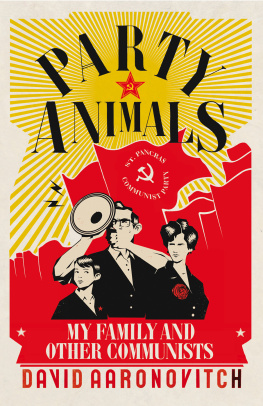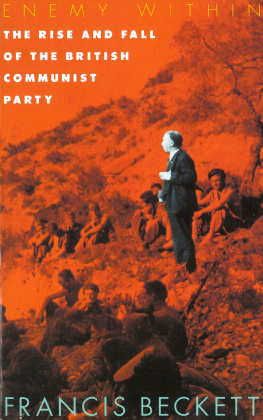International Communist Party - The Communist Party in The Tradition of the Left
Here you can read online International Communist Party - The Communist Party in The Tradition of the Left full text of the book (entire story) in english for free. Download pdf and epub, get meaning, cover and reviews about this ebook. genre: Politics. Description of the work, (preface) as well as reviews are available. Best literature library LitArk.com created for fans of good reading and offers a wide selection of genres:
Romance novel
Science fiction
Adventure
Detective
Science
History
Home and family
Prose
Art
Politics
Computer
Non-fiction
Religion
Business
Children
Humor
Choose a favorite category and find really read worthwhile books. Enjoy immersion in the world of imagination, feel the emotions of the characters or learn something new for yourself, make an fascinating discovery.
- Book:The Communist Party in The Tradition of the Left
- Author:
- Genre:
- Rating:3 / 5
- Favourites:Add to favourites
- Your mark:
- 60
- 1
- 2
- 3
- 4
- 5
The Communist Party in The Tradition of the Left: summary, description and annotation
We offer to read an annotation, description, summary or preface (depends on what the author of the book "The Communist Party in The Tradition of the Left" wrote himself). If you haven't found the necessary information about the book — write in the comments, we will try to find it.
The Communist Party in The Tradition of the Left — read online for free the complete book (whole text) full work
Below is the text of the book, divided by pages. System saving the place of the last page read, allows you to conveniently read the book "The Communist Party in The Tradition of the Left" online for free, without having to search again every time where you left off. Put a bookmark, and you can go to the page where you finished reading at any time.
Font size:
Interval:
Bookmark:
THE COMMUNIST PARTY IN THE TRADITION OF THE LEFT
International Communist Party (1974)
Introduction
September 1974
The following text uses quotations drawn from the most significant texts of the last fifty years (1920-1970) to re-propose the Marxist conception of the party and of the partys tasks, functions and organic dynamics. Under the crushing blows of the Stalinist counter-revolution and no less fetid post-Stalinism, only the Communist Left of Italy managed to keep this conception in line with that of Marx, Lenin and the III International, by constantly defending and restoring it in the face of every deviation, and codifying it in theses and texts which constitute the objective result of the historic experience of the proletarian struggle and the world communist movement.
The text presents the quotations in chronological order and subdivided according to topic. In each chapter there is an introduction which serves to place them in their relevant context and highlight the implications and consequences of the thought they express. Since in fact the statements contained in each of the parts constitute an inseparable whole, a unity of positions running in perfect continuity along the thread of time, the subdivision into chapters and titles is of a purely technical and functional character.
For the most part the quotations are drawn from the following texts, to which we refer readers and militants who wish to read them in their entirety:
Theses on the Role of the Communist Party in the Proletarian Revolution, 1920
Party and Class, 1921
Party and Class Action, 1921
The Democratic Principle, 1922
The Tactics of the Communist International, 1922
The Rome Theses, 1922
Theses of the P.C.dI. at the IV Congress of the C.I., 1922
Communist Organisation and Discipline, 1924
Motion of the Left of the P.C.dI. at the National Conference in Como, 1924
Lenin on the Path of Revolution, 1924
The Lefts Speeches and Motions at the V Congress of the C.I., 1924
The Lefts Platform, 1925
The International and the Dangers of Opportunism, 1925
The Lyon Theses, 1926
Speech by the Lefts Representative at the IV Session of the 6 th ECCI, 1926
The Partys Political Platform, 1945
Post-war Perspectives in Relation to the Partys Platform, 1946
The Historical Cycle of Bourgeois Political Domination, 1947
The Historical Course of the Proletarian Class Movement, 1947
Nature, Function and Tactics of the Revolutionary Party of the Workig Class, 1947
Force, Violence and Dictatorship in the Class Struggle, 1948
General Guiding Principles, 1949
Characteristic Theses of the Party, 1951
Dogs Legs, 1952
Essential Politics (Politique dabord), 1952
The Corpse Still Walks, 1953
The Great Man in History, 1953
Croaking Praxis, 1953
The "Racial" Pressure of the Peasantry..., 1953
Russia and Revolution in the Marxist Theory, 1955
Dialogue with the Dead, 1956
Economic and Social Structure of Russia Today, 1957
Notes for the Theses on the Question of Organisation, 1964
Considerations on the Organic Activity of the Party..., 1965
Theses on the World C.Ps Historical Task, Action and Structure..., 1965
Supplementary Theses on the Historical Task..., 1966
Continuity of Action of the Party in Line with the Tradition of the Left, 1967
Introductions to the Volume "In Defence of the Continuity of the Communist Programme", 1970
As the reader can see, it is all the historical patrimony of the Communist Left and of the International Communist Party which arose on the basis of Communist lefts positions in 1952, and it is here reclaimed and restated in its entirety.
The necessity for a comprehensive restating of this historic patrimony is linked to the troubling events which have affected the organisation of the International Communist Party over the past few years, prompting the need for a new party organ, Il Partito Comunista , to be set up as the organisational point of reference for all those wishing to militate on the Lefts positions. Only in total allegiance to these positions can the International Communist Party arise, develop and survive; that is, only on these genuinely Marxist foundations can the compact and powerful World Communist Party, indispensable organ of the proletarian revolution and the class dictatorship which will follow, be organised.
June 1974
Although weve had several requests for "texts" from ex-members and people we dont know, the text which follows, like the letter-circulars leading up to it, is addressed exclusively to party members. Clearly we havent satisfied the curiosity which has been aroused over the last few months by the notorious communiqus in Programma Comunista , culminating in that frosty warning which should be consigned to some museum of monstrosities.
Rejected by the Centre as total and absolute rubbish, this work is a modest contribution which amplifies a proposal made some years ago. Maybe if the compass hadnt spun out of control, it would have appeared in the columns of Programma Comunista , instead of all those dubious articles on organisation.
Comrades will note that nine tenths of the work is composed of excerpts from our fundamental texts, arranged according to subject, covering a fifty year time span, and standing in confirmation of the continuity and invariance of the positions of the Communist Left, ever faithful to revolutionary Marxism.
But the task doesnt stop there. Marx and Lenin need to be studied too. Indeed the work is already well underway, and will soon be the subject of a second pamphlet.
As the continuer of the tradition bearing the names of Marx and Lenin, referring to the Communist Left should suffice; but with things they way they are, when the next falsification, manipulation or arbitrary interpretation may occur at any time, and, moreover, be committed by those from whom you least expect it, we are forced to go back to the basics on all questions, grasping the thread of time as far back as we can. And that, in fact, is the classical method we have always subscribed to.
The text, then, merely proposes to correctly restate postulates we all know and we all once accepted, even if we didnt always agree with them; postulates worked out by generations of past and present militants with the aim of strengthening and spreading the fighting party organisation; a party whose continuous development is assured by this continuous and unremitting work.
That, then, is the road we need to take. There is no other way. There are no new decisions to be taken, restructurings to be carried out, or modifications to be made under the specious and ever dubious pretext of impending new situations. The party forges its organs through action, in the measure that the various forms of action require them, adapting or substituting them with more suitable ones out of organic necessity; it doesnt claim that the perfection of these organs, their automatism , can be a surrogate for correct action; as though everything was to do with organisation a typical error of the activist variety in the field of organisation. The party organisation does not arise in vitro , in the fallacious laboratory of the brain, independent from the class struggles actual development. That would mean creating a lovely little model of a party, but not a real "compact and powerful" party whose instruments of battle are forged in the furnace of social struggle.
The feverish pursuit of perfectionism and automatism entails an error which spreads from the organisational field to the tactical one and affects the nature and functioning of the party. Pointed out many times by the Left to the International, the error consisted in the belief that a strong organisation can achieve anything (with strong meaning subordinate to any centralism whatsoever and ready to lend itself to any manoeuvre). Give us a Bolshevik organisation and everything is permitted. Lets build a disciplined, all-purpose party and victory will be assured.
Next pageFont size:
Interval:
Bookmark:
Similar books «The Communist Party in The Tradition of the Left»
Look at similar books to The Communist Party in The Tradition of the Left. We have selected literature similar in name and meaning in the hope of providing readers with more options to find new, interesting, not yet read works.
Discussion, reviews of the book The Communist Party in The Tradition of the Left and just readers' own opinions. Leave your comments, write what you think about the work, its meaning or the main characters. Specify what exactly you liked and what you didn't like, and why you think so.

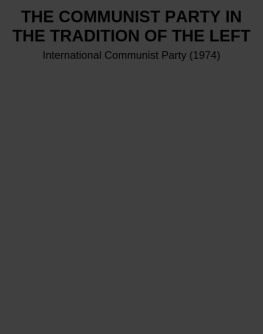

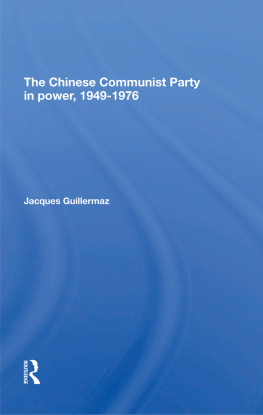
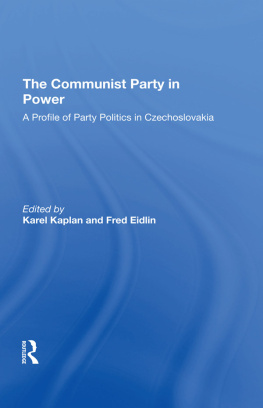
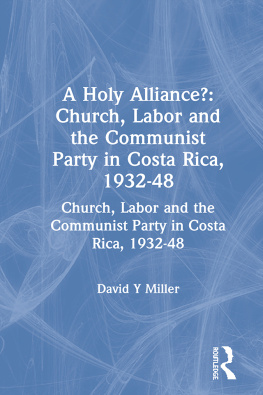
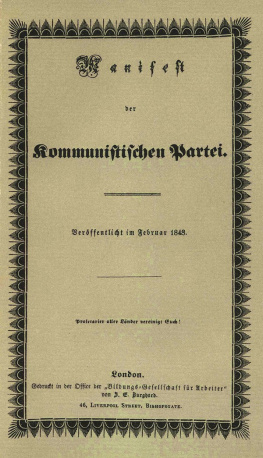
![Communist Party of PeruCommunist Party of Peru - Shining - The Collected Works of the Communist Party of Peru. 1968-1999 [Warning: Hate Speech and Negationism]](/uploads/posts/book/267146/thumbs/communist-party-of-perucommunist-party-of-peru.jpg)
